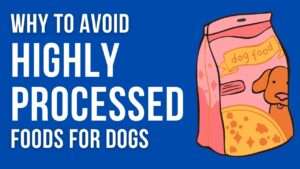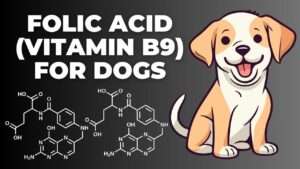Curious pet owners often wonder about the safety of sharing their favorite snacks with their furry companions.
One common query revolves around almond butter—a popular spread enjoyed by many. But can dogs partake in this nutty delight safely?
Delving into this question uncovers both considerations and precautions for pet owners looking to treat their canine friends.
Contents Overview
What is Almond Butter
Almond butter is a creamy spread made from ground almonds, similar to peanut butter but with a distinct nutty flavor.
It’s a nutritious alternative to traditional spreads, rich in healthy fats, protein, and fiber. Almond butter is versatile, used in sandwiches, smoothies, and as a dip for fruits and vegetables.
It’s a popular choice for those with peanut allergies and anyone looking for a nutritious snack option.
Nutritional Value of Almond Butter
Almond butter packs a nutritional punch, offering a balance of healthy fats, protein, and fiber. Just two tablespoons provide around 200 calories, along with 18 grams of fat, primarily heart-healthy monounsaturated fats.
It’s also a good source of protein, with about 7 grams per serving, aiding in muscle repair and satiety.
Additionally, almond butter contains essential nutrients like vitamin E, magnesium, and calcium, contributing to overall health and well-being.
However, it’s essential to consume in moderation due to its calorie density.
Can Dogs Eat Almond Butter safely?
While almond butter isn’t inherently toxic to dogs, it’s best to avoid feeding it to them regularly.
Some dogs may enjoy the taste, but almond butter can pose risks due to its high-fat content, which may lead to pancreatitis or obesity.
Additionally, some almond butter brands may contain added ingredients like xylitol, a sugar substitute highly toxic to dogs.
If you do offer almond butter as an occasional treat, ensure it’s free from harmful additives and feed in small quantities to prevent digestive issues.
As always, consult with your veterinarian before introducing any new food to your dog’s diet.
Potential Benefits of Almond Butter to Dogs
Feeding almond butter to dogs in moderation can offer several potential benefits:
1- Improved Skin and Coat Health
The healthy fats in almond butter can help nourish a dog’s skin and coat, reducing dryness and promoting shine.
2- Enhanced Digestion
Almond butter contains fiber, which can aid in digestion and promote regular bowel movements in dogs.
3- Boosted Immune System
The vitamins and minerals in almond butter, such as vitamin E, contribute to a stronger immune system, helping dogs fight off infections and illnesses.
4- Energy Boost
The protein and healthy fats in almond butter provide dogs with a sustained energy source, making it an excellent snack for active dogs or those in need of a little extra fuel.
5- Joint Health
The presence of magnesium and calcium in almond butter can support bone and joint health in dogs, especially in older or arthritic pets.
Potential Risks and Precautions of Feeding Almond Butter to Dogs
While almond butter can offer some potential benefits to dogs, it’s essential to be aware of the potential risks and take necessary precautions when feeding it to your furry friend.
In this portion, we’ll delve into the potential risks and precautions associated with feeding almond butter to dogs to ensure their safety and well-being.
1- Risks of Feeding Almond Butter to Dogs
Despite its nutritional value, almond butter poses several risks to dogs:
Allergies:
Almonds are a common allergen for dogs, and some pets may experience allergic reactions after consuming almond butter. Symptoms may include itching, redness, swelling, vomiting, or diarrhea.
Gastrointestinal Upset:
Almond butter is high in fat, which can be difficult for some dogs to digest. Consuming large amounts of almond butter may lead to gastrointestinal upset, including diarrhea, vomiting, or pancreatitis.
Choking Hazard:
Almond butter can be sticky and may pose a choking hazard, especially for small dogs or those prone to gulping their food without chewing properly. It’s important to supervise your dog while they eat almond butter to prevent choking incidents.
Obesity and Weight Gain:
Almond butter is calorie-dense, and excessive consumption can contribute to obesity and weight gain in dogs. Overfeeding almond butter may lead to an imbalance in your dog’s diet and potentially cause health problems over time.
2- Precautions When Feeding Almond Butter to Dogs
To mitigate the risks associated with feeding almond butter to dogs, consider the following precautions:
Moderation is Key:
Almond butter should be given to dogs in moderation as an occasional treat rather than a primary source of nutrition. Limit the amount of almond butter you offer to your dog to avoid overfeeding and potential health issues.
Choose Natural Almond Butter:
Opt for natural almond butter without added sugars, salt, or artificial additives. Avoid varieties that contain xylitol, a sweetener that is toxic to dogs.
Monitor for Allergic Reactions:
When introducing almond butter to your dog’s diet for the first time, monitor them closely for signs of allergic reactions, such as itching, swelling, or gastrointestinal upset. Discontinue feeding almond butter if any adverse reactions occur and consult your veterinarian.
Watch for Digestive Issues:
Keep an eye on your dog’s digestive health after consuming almond butter. If your dog experiences diarrhea, vomiting, or other gastrointestinal symptoms, refrain from feeding them almond butter in the future.
Supervise While Eating:
Always supervise your dog while they consume almond butter to prevent choking incidents or overconsumption. Offer almond butter in small amounts and consider spreading it on a dog-safe treat or toy for added enrichment.
Safe Ways to Feed Almond Butter to Dogs
Almond butter can be a delicious and nutritious treat for dogs when offered in safe and appropriate ways. In this guide, we’ll explore the various safe methods of feeding almond butter to dogs to ensure their enjoyment without compromising their health and well-being.
- Use Almond Butter as a Topping:
- Spread a thin layer of almond butter on dog-safe treats or toys, such as a Kong or puzzle feeder, to provide mental stimulation and enrichment for your dog. This allows them to enjoy the taste of almond butter while engaging in interactive play.
- Mix Almond Butter with Dog-Friendly Foods:
- Incorporate almond butter into homemade dog treats or mix it with dog-friendly fruits and vegetables, such as bananas or carrots, to create a nutritious and tasty snack. Be sure to use small amounts and avoid ingredients that may be harmful to dogs, such as chocolate or grapes.
- Stuff Almond Butter into Dog-Safe Chew Toys:
- Fill hollow chew toys, such as a Kong or rubber chew bone, with almond butter and freeze it for a refreshing and long-lasting treat. This method not only provides mental stimulation but also helps soothe teething discomfort and promotes dental health.
- Use Almond Butter as a Training Reward:
- Use small amounts of almond butter as a high-value reward during training sessions to reinforce positive behavior. You can offer small dollops of almond butter on a spoon or use it to coat training treats for added appeal.
- Make Almond Butter Treats:
- Prepare homemade dog treats using almond butter as a primary ingredient. There are many dog-friendly recipes available online that incorporate almond butter into biscuits, muffins, or frozen treats. Ensure that the treats are appropriately sized and free from ingredients that may be harmful to dogs.
- Offer Almond Butter in Moderation:
- While almond butter can be a tasty treat for dogs, it should be offered in moderation to prevent overconsumption and potential health issues. Limit the amount of almond butter you give to your dog and consider it as an occasional indulgence rather than a regular part of their diet.
- Monitor for Adverse Reactions:
- Keep an eye on your dog after feeding them almond butter for any signs of allergic reactions or digestive upset. If your dog experiences itching, swelling, vomiting, diarrhea, or any other adverse reactions, discontinue feeding almond butter and consult your veterinarian.
When to Avoid Almond Butter to Dog
- Allergic Reactions: If your dog has a known allergy to nuts or almonds.
- Digestive Issues: If your dog has a sensitive stomach or a history of gastrointestinal upset.
- Weight Management: If your dog is overweight or on a weight management plan, due to almond butter’s high calorie content.
- Xylitol Content: If the almond butter contains xylitol, a sweetener that is toxic to dogs.
- Pancreatitis Risk: If your dog has a history of pancreatitis or other pancreatic issues, due to the high fat content in almond butter.
- Choking Hazard: If your dog tends to gulp food without chewing properly, as almond butter can be sticky and pose a choking risk.
Safe and Suitable Alternatives of Almond Butter for Dogs
For dogs who can’t enjoy almond butter or need alternatives, there are plenty of safe and suitable options available.
Peanut butter, specifically unsalted and unsweetened varieties, is a popular choice among dog owners due to its similar creamy texture and enticing flavor.
Other nut butters, such as cashew or sunflower seed butter, can also be suitable alternatives, provided they are free from added sugars, salts, and artificial additives.
Additionally, mashed bananas or pumpkin puree can offer a naturally sweet and nutritious option for dogs who enjoy fruity flavors.
Always ensure that any alternative you choose is safe, appropriate for your dog’s dietary needs, and offered in moderation to prevent overconsumption.
Bottom Line
Ultimately, while almond butter isn’t inherently toxic to dogs, it’s best to err on the side of caution.
Given the potential risks associated with its high fat content and the possibility of harmful additives like xylitol, it’s advisable to refrain from regularly sharing almond butter with your canine companions.
When it comes to treating your furry friends, always prioritize their health and well-being by consulting with a veterinarian for guidance on suitable snacks and treats.




































+ There are no comments
Add yours